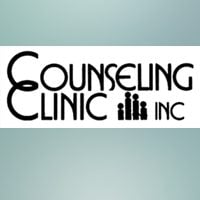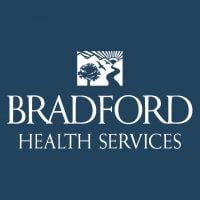Quapaw House - Hot Springs
Drug Rehab Center in Hot Springs, Arkansas
Quapaw House - Hot Springs is an internationally-accredited addiction treatment facility offering 24/7 medical care and specialized therapies tailored to each client's physical, psychological, and spiritual needs for long-term recovery from alcohol and drug addiction.
About Quapaw House - Hot Springs in Arkansas
Quapaw House - Hot Springs, located in Hot Springs, Arkansas, is a non-profit addiction and substance abuse treatment center providing residential and outpatient services to individuals and families. Utilizing a holistic approach, they offer evidence-based treatments, alternative therapies, and support services to create individualized plans for their clients.
- Quapaw House - Hot Springs integrates evidence-based therapeutic models such as Cognitive Behavioral Therapy (CBT), Dialectical Behavior Therapy (DBT), Motivational Interviewing (MI), and Family Systems Theory (FST) to help clients better understand and manage their addiction.
- The center provides a variety of services, including weekly group sessions, individual counseling, group counseling, educational seminars, recovery activities, and relapse prevention.
- Clients have access to recreational activities and outdoor adventures, such as yoga and rock climbing, to help them develop a healthier lifestyle.
Quapaw House - Hot Springs is accredited by the Joint Commission, a prestigious accreditation awarded to facilities with a high level of quality and safety. They are also licensed by the Arkansas Department of Human Services and have been designated as a Certified Community Behavioral Health Clinic.
The center treats a range of addictions and substance abuse issues, offering both residential and outpatient levels of care. Their evidence-based treatment methods, combined with alternative therapies and comprehensive support services, aim to provide a well-rounded approach to addiction recovery.
Genders
Ages
Modality
Additional
Accreditations

CARF
The Commission on Accreditation of Rehabilitation Facilities (CARF) is a non-profit organization that specifically accredits rehab organizations. Founded in 1966, CARF's, mission is to help service providers like rehab facilities maintain high standards of care.
Conditions and Issues Treated
With so many people addicted to opioids, we need to help those who want to quit. The cycle begins when opioid addicts take opioids for a painful injury. When someone starts taking their medication differently or in excess, it means they’re addicted and at risk of overdosing.
In , detoxing from these types of treatments is the most effective way to beat this. Most facilities begin with medical assistance and then provide counseling services; rehabilitation follows after successful treatment.
Dual diagnosis refers to someone who has both an addiction and a mental or emotional illness. Dual diagnosis treatment includes therapy for both issues simultaneously, allowing for effective treatment of either.
Sometimes people with addiction disorders also have co-occurring disorders like depression, anxiety, bipolar disorder, etc. These require specialized treatment programs that address both drug and alcohol addiction as well as psychiatric illnesses. Some rehabilitation facilities provide patients with co-occurring disorders a program with highly integrated services and a clean, distraction-free environment.
Levels of Care Offered
This center offers a variety of custom treatment tailored to individual recovery. Currently available are Detox, Drug Rehab, Dual-Diagnosis, Inpatient, Intensive Outpatient, Outpatient, Residential, Sober-Living / Half-Way, with additional therapies available as listed below.
Detox is an integral part of recovery and often very hard. Detoxification is the process of letting the body remove the drugs in it. It addresses the physical aspect of addiction. Detox from drugs can be unsafe as the patient undergoes withdrawal symptoms that range from headaches, vomiting, body aches to seizures and cardiac arrests. The main purpose of detox is to keep the drug users comfortable as the drugs leave their system.
Quitting cold turkey is not recommended and can lead to many issues. Detox is best done under medical supervision so that a team of experts can monitor the side effects and complications. Detox, alone, does not guarantee sobriety as the underlying psychological issues are not addressed.
Inpatient treatment is a form of recovery used in drug rehab. Inpatient recovery offers individual therapy, groups, and family therapy to ensure that the addict has the best recovery possible. A variety of treatments are provided in this type of recovery, depending on what treatment the addict needs at that particular time.
The length of inpatient addiction treatment depends on the addict and their addiction. Inpatient rehabilitation can last anywhere from 30 days to 90 days, depending on how severe the drug abuse is. Inpatient rehab is a costly drug treatment, costing anywhere from $30k- to $60k. However, insurance often offers help in covering these costs.
An intensive outpatient program (IOP) is effective for drug rehab, but it can take six months to several years to complete. It’s the most popular type of drug rehab program in the United States. One example of a successful IOP success story is actor and comedian Chris Rock, sober since 1990.
An IOP allows participants to spend nights at home while attending meetings throughout the day. It’s a good way for drug addicts to make a recovery plan in an outpatient setting while still supporting their loved ones.
Alcohol or drug addiction, or co-occurring disorders, are treated in an outpatient program. The patient must attend therapy and other programs at the facility but can return home each night.
Outpatient treatment allows recovering addicts to live at home while receiving addiction treatment. Outpatients can attend group sessions for a few hours per week. Outpatients may also continue to work full time and study/attend school without interruption if they choose.
Sober living homes, offered by rehabilitation facilities, help recovering addicts transition back into society. These homes have rules and regulations that must be followed to maintain sobriety. They also provide resources such as vocational training and therapy sessions.
Residential treatment programs are those that offer housing and meals in addition to substance abuse treatment. Rehab facilities that offer residential treatment allow patients to focus solely on recovery, in an environment totally separate from their lives. Some rehab centers specialize in short-term residential treatment (a few days to a week or two), while others solely provide treatment on a long-term basis (several weeks to months). Some offer both, and tailor treatment to the patient’s individual requirements.
Therapies & Programs
Different people react differently to various treatment options. Some drug rehabilitation centers offer individualized treatment that caters to the specific needs of a drug addict. The best treatment option varies on an individual depending on the type of drug abused, life history, medical condition of the person, social circumstances, and the environment they live in now.
When a person enters drug rehab, they usually have anti-drug associations such as withdrawal symptoms, stress, cravings, etc. The first step of drug rehab is to detoxify the body from any residual substances in it. Drug rehabilitation centers usually employ trained medical professionals to help in this process. Usually, the initial detoxification lasts for five days, where the person is monitored under close supervision.
Family therapy sessions typically involve the addict and their family members. During these sessions, a therapist will work with everyone involved to help them understand addiction and find healthy ways of coping without substance abuse.
Some addicts might feel embarrassed about their substance abuse problems. By encouraging family members to attend these sessions, therapists can show addicts that they’re not alone in dealing with addiction. Therapists can also work with family members to help them understand addiction and learn how to offer support and encouragement to their loved one as they deal with substance abuse issues.
Attending group therapy at Quapaw House - Hot Springs in , is a useful way for those seeking sobriety to realize they aren’t the only one going through it.
This is when a group of people on different recovery phases get together and talk about what they’re going through, their triggers, successes, and failures. This can include alternative types of therapies too! Group therapy may occur on an outpatient or inpatient basis with groups that have no pre-existing relationships outside the session, unlike support groups where everyone already knows each other beforehand.
Cognitive Behavioral Therapy is a type of psychotherapy that helps people address the thoughts and behaviors that may have led to their addiction. It also helps change negative thoughts into positive ones and promotes healthy communication between addicts and those around them. CBT is an efficient treatment for individuals suffering from all sorts of addictions.
Cognitive Behavioral Therapy (CBT) focuses on the underlying thoughts and behaviors that caused the problem of addiction in the first place and may cause a relapse. Negative feelings are common in drug abuse disorders, but they can lead to co-occurring disorders if not recognized. CBT involves strategies that help to change the behavior pattern by restructuring negative thoughts into positive ones. It helps to remove these feelings, and it provides long-term benefits. Also, CBT promotes self-awareness, self-control and can be administered as a mono-therapy or as part of combination therapy.
Payment Options Accepted
For specific insurance or payment methods please contact us.
Is your insurance accepted?
Ask an expert, call (888) 674-0062
Quapaw House Associated Centers
Discover treatment facilities under the same provider.
- Quapaw House CORT in Little Rock, AR
- Quapaw House - Adult Residential and Medical Detox in Hot Springs National Park, AR
- Quapaw House - Outpatient in Hot Springs National Park, AR
- Quapaw House - Adolescent Treatment in Hot Springs National Park, AR
- Quapaw House - Hot Springs National Park in Hot Springs National Park, AR
Learn More About Quapaw House Centers
Additional Details
Specifics, location, and helpful extra information.
Hot Springs, Arkansas 71901 Phone Number(501) 767-4456 Meta DetailsUpdated April 15, 2024
Staff Verified
Quapaw House - Hot Springs Patient Reviews
There are no reviews yet. Be the first one to write one.
Hot Springs, Arkansas Addiction Information
Arkansas has one of the highest rates of substance abuse and addiction in the nation for drug overdoses. Methamphetamines and prescription opioids are by far the most widely abused drugs in the state. Despite the high rates, Arkansas ranked only 25th in the for drug overdose deaths in 2013.
The drug addiction problem in Hot Springs, Arkansas, is relatively bad. According to recent statistics, over 1,000 admissions to treatment centers for drug and alcohol abuse in Hot Springs in 2016. This means that approximately 2.8% of the population of Hot Springs sought treatment for addiction in 2016. Additionally, there were 8 fatalities due to drug overdoses in Hot Springs in 2016.
Treatment in Nearby Cities
- Morrow, AR (121.8 mi.)
- West Helena, AR (141.0 mi.)
- Conway, AR (53.8 mi.)
- Helena, AR (141.0 mi.)
- Mountain View, AR (108.6 mi.)
Centers near Quapaw House - Hot Springs
The facility name, logo and brand are the property and registered trademarks of Quapaw House - Hot Springs, and are being used for identification and informational purposes only. Use of these names, logos and brands shall not imply endorsement. RehabNow.org is not affiliated with or sponsored by Quapaw House - Hot Springs.









